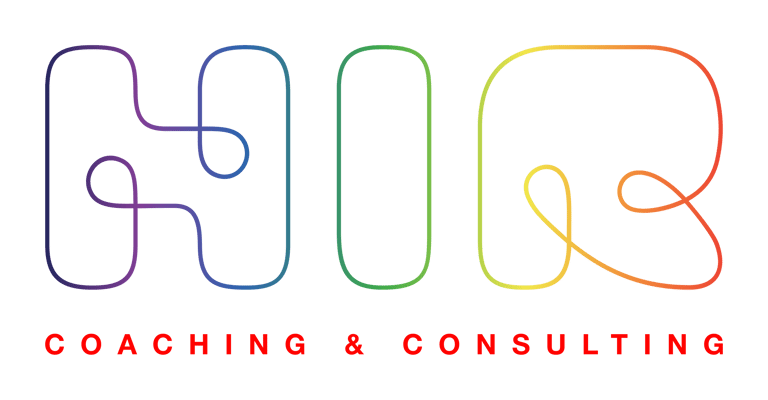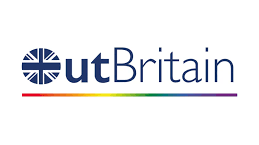The First Step Is Wanting Change, Not Fearing It
We humans have an incredible capacity to find comfort in discomfort. We tolerate stress, lack of fulfilment, and even unhappiness — because at least it’s known.
FOR YOU
James
8/31/20254 min read


Change is one of those words that can feel heavy. For many people, it’s not the change itself that’s the hardest part — it’s the fear of change. Even when “now” is uncomfortable, it can feel safer than stepping into the unknown.
Think about it:
Staying in a job that drains you, because it pays the bills.
Remaining in a relationship that feels stagnant, because at least it’s familiar.
Holding onto habits that don’t serve you, because they’re easier than starting fresh.
Even if the present is technically undesirable, it can still feel less scary than what comes next. Because the truth is, once you commit to change, what is current will never be possible again. There’s no going back. And that permanence can feel overwhelming.
The Paradox of Comfort in Discomfort
We humans have an incredible capacity to find comfort in discomfort. We tolerate stress, lack of fulfilment, and even unhappiness — because at least it’s known.
The unknown requires us to let go. It asks us to release identities, routines, even relationships that once felt secure. It invites us into a future we can’t fully see. And that is terrifying for many of us.
So, we take the easier option: to do nothing. To cling to the safety of the known, even when it’s not working.
But there’s another layer to this fear that’s even more surprising.
Do We Really Fear Failure… or Success?
Here’s something I see often in coaching: it’s not always failure people are afraid of. In fact, failure is strangely manageable. Failure can be rationalised. It allows us to return to the status quo, to retreat into what we know, to say, “At least I tried.”
What’s far more unsettling is the possibility of success.
Because success means change too.
If you succeed in leaving your job, you’ll need to redefine your identity, build new routines, and step into a new version of yourself.
If you succeed in building a business, you’ll face bigger responsibilities, greater expectations, and visibility you’ve never had before.
If you succeed in changing your lifestyle, you might outgrow people, habits, or environments that once defined you.
Failure lets us stay who we are. Success demands that we become who we could be.
Insights from Psychology
This paradox isn’t new. The great psychologist Abraham Maslow described it as the Jonah Complex — “the fear of one’s own greatness, the evasion of one’s destiny, or the avoidance of exercising one’s talents.” In other words, we’re not just afraid of falling short; we’re afraid of fully stepping into our potential.
Modern psychology backs this up. Fear of success often ties to imposter syndrome, social anxiety, guilt about surpassing others, or the weight of higher expectations (Verywell Mind).
As author Charles F. Glassman reminds us:
“Fear of failure and/or fear of success can sabotage our best efforts. Knowing that situations causing these fears rarely represent actual danger can eliminate many anxieties.”
And as a Forbes feature on the subject noted:
“The fear of success involves anxiety about achieving one’s goals and the potential consequences that accompany that achievement. It is the unease about stepping into a new level of accomplishment and facing the unknown challenges it may bring.”
Put simply: success changes us, and change can be uncomfortable — even when it’s good.
The Shift: From Fear to Wanting
The first step, then, isn’t reinventing your entire life overnight. It’s something much simpler, but far more profound: you have to want the change more than you fear it.
That’s the tipping point. Desire outweighs fear. You stop clinging to what is comfortable but unfulfilling, and you start reaching for what could be.
How Coaching Tips the Balance
This is where coaching comes in. A coach doesn’t just tell you what to do. They create the space to explore your fears, your values, and your aspirations. They help you see the gap between where you are and where you could be — and then support you to bridge it.
Through coaching, you can:
Clarify what you really want — your vision of change, success, and fulfilment.
Understand and reframe your fears — whether they come from fear of failure or fear of success.
Take small, intentional steps forward — so momentum builds, and fear becomes quieter over time.
It’s not about erasing fear entirely. It’s about recognising it, naming it, and choosing not to let it be in charge of your life.
The Evidence: Why Coaching Works
It’s not just my experience with clients that proves this. The data is compelling:
87% of organisations say executive coaching delivers a high ROI (International Coaching Federation).
Coaching improves individual performance and productivity by as much as 70% (CJPI).
Clients report a median ROI of 7×, with some reporting as much as 50× returns (Luisa Zhou).
82% of leaders say coaching improves their leadership effectiveness (Kinkajou Consulting).
Coaching has been shown to improve wellbeing, resilience, and coping skills alongside performance outcomes (Kinkajou Consulting).
The research is clear: coaching doesn’t just help you dream about change — it helps you make it real.
Your Invitation
So if you’re feeling stuck, ask yourself: Do I want the change more than I fear it? And be honest: Am I more afraid of failing, or of succeeding?
Because staying the same might feel safe, but it costs you joy, energy, and the chance to live in alignment with who you really are. The unknown may be scary, but it’s also the only place new possibilities live.
Success isn’t something to fear. It’s an invitation to step into the fullest version of yourself.
And if you’re ready to take that first step, coaching can be the support, the challenge, and the accountability that helps you walk into that unknown with confidence.
HiR Coaching & Consulting is a business name registered in New South Wales, Australia. ABN 53693942059
100% Money Back Guarantee
Foundations Program – Our Promise
The Foundations Program comes with a clear promise.
If, after completing Foundations, you:
do not get something positive from the experience and
do not make at least one agreed change identified in your initial 30-minute onboarding call
then you can choose one of two options:
A full refund, minus the cost of the Strengths Profile assessment, or
Continue working with me at no additional cost until you achieve a meaningful breakthrough.
This promise exists because Foundations is designed to create clarity, momentum, and real change — not just conversation.
Coaching Memberships – Flexibility, Not Guarantees
On-going coaching memberships do not come with a performance guarantee.
Instead, they are designed to be low-risk and flexible:
You can cancel at any time
There are no penalties or lock-ins
You stay because the coaching is useful — not because you’re tied to a contract.
12-Month Upfront Memberships – Pro-Rata Refunds
If you choose to pay for 12 months upfront, you’re entitled to request a pro-rata refund at any time if you decide the experience is not positive for you.
In this case:
The number of coaching sessions already attended will be deducted from the original amount paid
The remaining balance will be refunded accordingly
Important Notes
Coaching is not a done-for-you service. Results depend on your willingness to engage, reflect, and take action.
If at any point it becomes clear that the agreed effort and participation are not there, I’ll raise this directly and honestly.
If alignment can’t be restored, a refund of the unused portion of the coaching may be issued at the standard coaching rate.
Exclusions
Refunds and guarantees do not apply to the Resume & Career Upgrade Package or the Seven Days of Strengths self-guided program, due to the nature of the work and time already invested.




Terms & Conditions
Payment is immediate at the time of booking.
Prices quoted on the website are in AUD, and HiR is registered in Australia. Payments and invoices are available in AUD, USD, CND, GBP, or EURO.
All sessions are online, booked via Calendly and conducted using Google Meet unless expressly agreed otherwise. In-real-life sessions may incur additional fees for travel and incidental expenses.
Sessions can be rescheduled using the calendly booking system as required.
All Calendly sessions are booked with a 30-minute buffer so that James can extend the session without any challenges or additional fees should we continue to get the work done. After your kick-off session, the agreement with your coach on the specific results you want to achieve from your personalised program will be documented.








